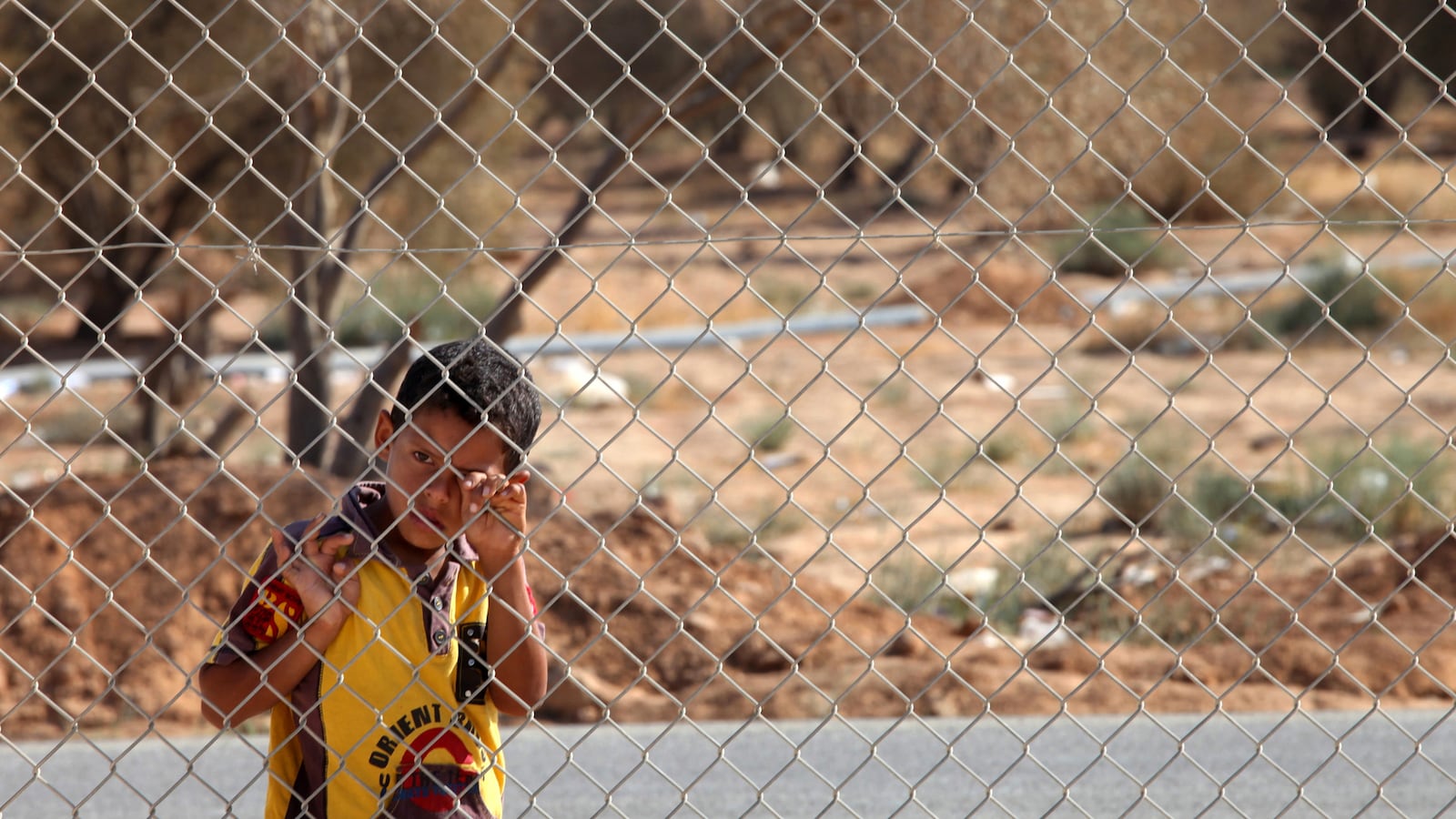On July 9, after fleeing their war-ravaged home in Syria, a man, his wife, and infant baby drove hundreds of miles to the tip of Jordan and tried to board a ferry that would take them to Egypt. They hoped that, upon arrival, they could apply for asylum and join the growing community of Syrian refugees already in Egypt, which has been seen as a safe haven since the beginning of the Syrian uprising. But on that particular Tuesday, the Syrian family was denied entry to Egypt, and told to go back to Syria. Their story, surprisingly, is just one of many.

Just one day earlier, without any warning, a new Egyptian visa requirement was established: Syrians, who usually only need a passport to enter the country, would now have to acquire a visa before coming to Egypt. Human-rights groups slammed this new policy as nearly impossible, since the Egyptian Embassy in Damascus is not issuing visas.
Following President Morsi’s ousting, Syrians, as well as other minority and foreign groups in Egypt, have found themselves further ostracized. Accusations are flying among both Islamist and opposition groups, labeling Syrians, Palestinians, Israelis, Iraqis, and Americans as provocateurs and foreigners meddling in Egyptian internal affairs. One notable instance, which many human-rights organizations labeled as hate speech, was a statement by Tawfik Okasha, owner of Al-Faraeen channel. On television, he told his viewers that any Syrian, Palestinian, or Iraqi seen on the street should be handed over to the police.
While the majority of Syrian refugees have not taken part in protests, a handful of Syrians were arrested following armed clashes between pro-Morsi and opposition protesters, further inciting anger against refugees in Egypt.
One young Egyptian woman, who asked not to be named, said that in her neighborhood in New Cairo, a predominantly upper-class satellite city outside Cairo, her friends warned her of Syrians reportedly trying to kidnap wealthy Egyptians. She said that once, when she got out of her car, a group of Syrian refugees surrounded her asking her for a place to live. She added that Egypt must close its border and stop open-door policies in order to quell foreign extremist elements from entering the country. “Egypt already has a high crime rate and unemployment,” she said. “Do we really need more people?”
Mohamed Dayri, the regional representative in Cairo for the United Nations High Commissioner for Refugees, acknowledged Egypt’s heightened security concerns, but says he, and the humanitarian community, “hope that the Egyptian government puts an end to the visa imposition for Syrian refugees.” He emphasized that for the most part, the Egyptian people have been supportive of Syrian refugees seeking asylum in Egypt. “From charity organizations to businessmen and women, people came forward to find jobs and homes for Syrians,” he said. “But recently, there has been disaffection for Syrians on the part of many Egyptians.”
Sima Diab, a Syrian activist in Cairo, voiced her concern on Twitter over the deteriorating situation, writing: “#Egypt has an inherent fear of ‘the other’, whoever that ‘other’ may be. Media hypes up the xenophobia, people go wild. Very dangerous.”
Another minority group in Egypt that has recently come under attack by pro-Morsi and militant Islamist groups is the Coptic Christian community. At Rabaa Mosque in Nasr City, where Morsi supporters have camped out since June 30, speakers blamed both the military and the Copts for Morsi’s downfall. Numerous Copts have been killed in recent sectarian violence, including a priest shot to death in the Sinai, and a Coptic man who was found beheaded, with his hands and feet still tied.
“Copts are looking for two things following Morsi’s ousting,” said Magda Abdelmalak, Egypt office director for the humanitarian organization Coptic Orphans. “We’re looking for security and economic development, which are the same things the majority of Egyptians call for.” She noted that most Copts are thrilled with Morsi’s removal from power, but now live in fear of continued targeted attacks. Many Coptic churches have been closed down temporarily.
Several Egyptian political leaders, including the interim vice president Mohamed ElBaradei, have taken to social media to express their concern over growing hostilities toward minority groups in Egypt. While Bahaa El-Din, Egypt’s interim deputy prime minister, said on his Facebook account that refugees and foreigners will be prosecuted if they take up arms, he stressed that all Arab citizens should be protected. “I wrote this statement in response to the hostility that’s widespread in the media and the general public against our Arab brothers, especially from Syria and Palestine,” he wrote. “As if they’re all Jihadists that have come to Egypt to bear arms and terrorize citizens and support a specific political movement.”
The Egyptian government has insisted that the new visa restrictions for Syrian refugees are only temporary, but what temporary really means remains to be seen. For the scores of Syrians who once viewed Egypt as their ticket out of a bloody conflict that has already claimed nearly 100,000 lives, a few weeks or months of denied entry could mean the difference between living and dying.






